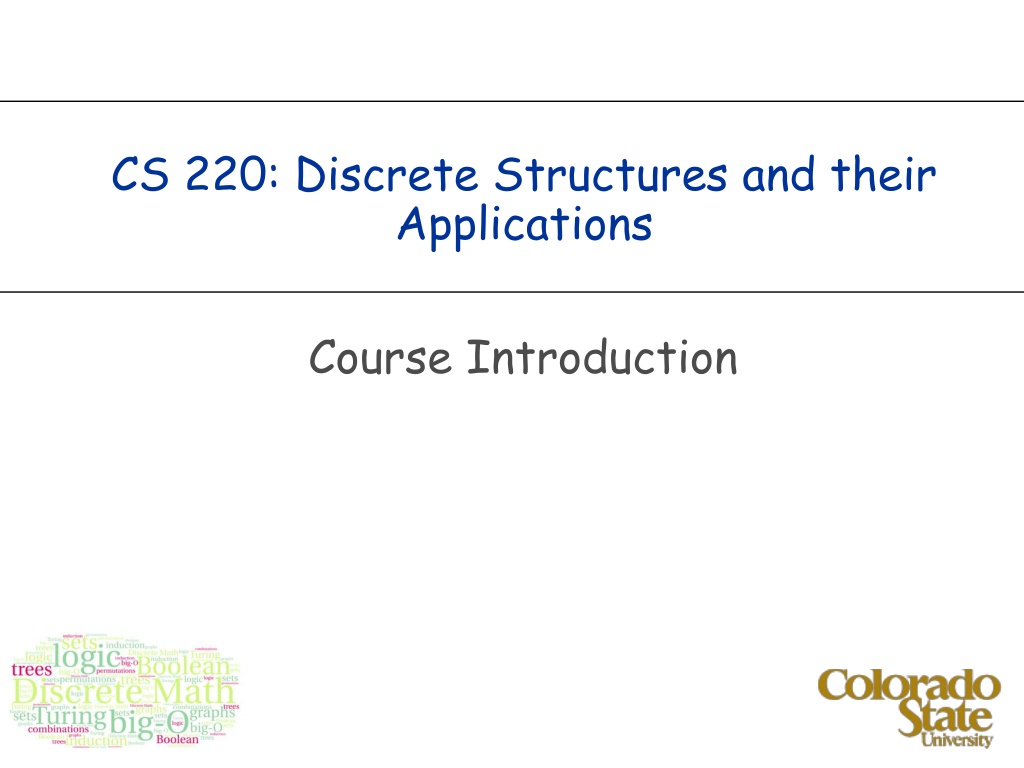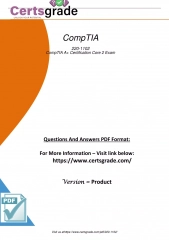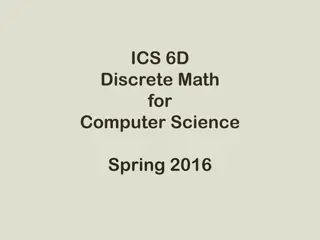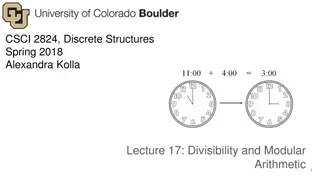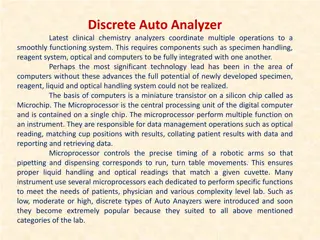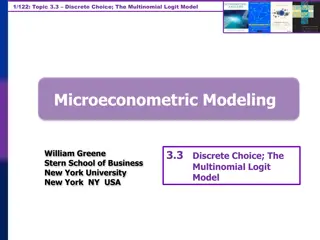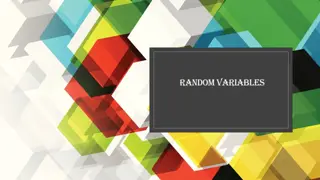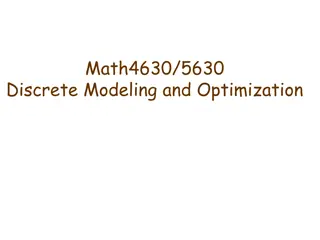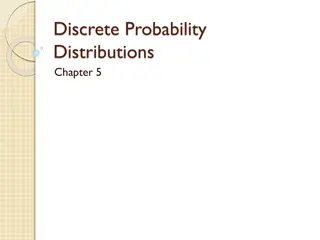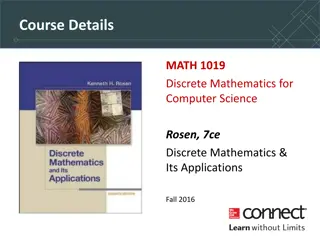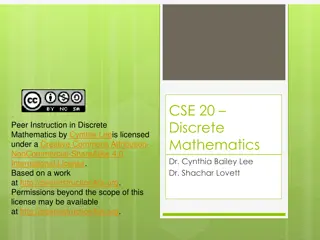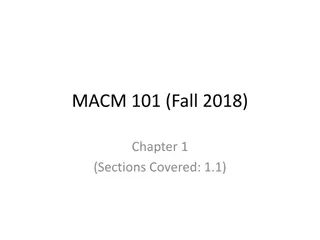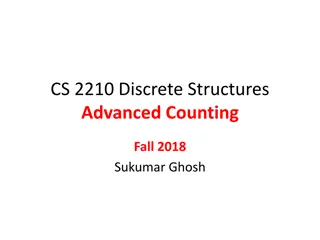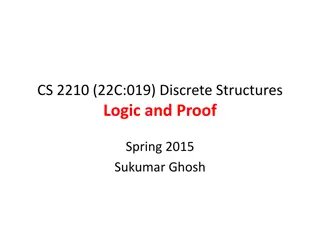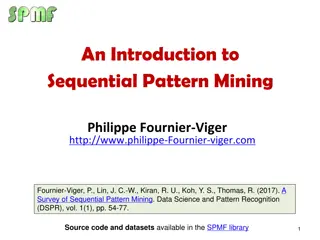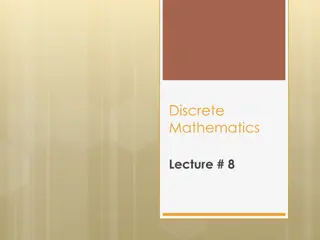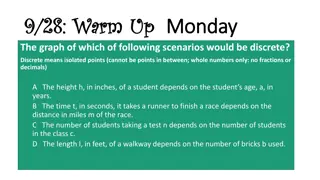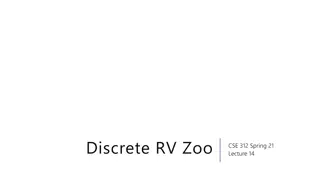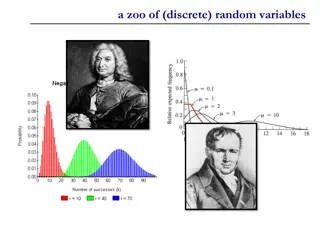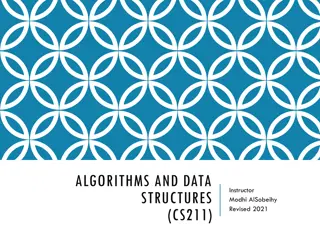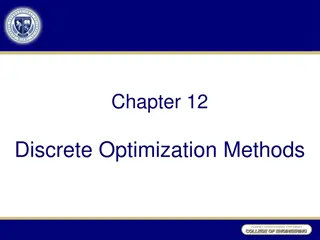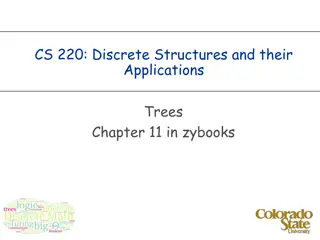CS 220: Discrete Structures and Their Applications Course Introduction
This math course explores the importance of reasoning about programs in computer science through mathematical concepts demonstrated in Python. The course covers topics such as program correctness, time and space complexity, and utilizes a dynamic programming language for flexibility. Utilize resources like the course webpage, Zybooks, and communication tools like Canvas and Piazza for a comprehensive learning experience.
Download Presentation

Please find below an Image/Link to download the presentation.
The content on the website is provided AS IS for your information and personal use only. It may not be sold, licensed, or shared on other websites without obtaining consent from the author. Download presentation by click this link. If you encounter any issues during the download, it is possible that the publisher has removed the file from their server.
E N D
Presentation Transcript
CS 220: Discrete Structures and their Applications Course Introduction
About this course This is a math course. Why is math important to us? What does it have to do with computer science? We need to be able to reason about our programs 1. Is our program correct? 2. How much time and space does it take We will also write programs. Programming language: Python!
Python We will use Python to demonstrate mathematical concepts. Why Python? Simple, easy to learn syntax Highly readable, compact code: almost like pseudo-code One of the most highly used programming languages What makes Python different from Java? Java is statically typed, i.e. variables are bound to types at compile time. This avoids run time errors, but makes java programs more rigid. Python is dynamically typed, i.e. a variable takes on some type at run time, and its type can change. This makes python programs more flexible, but can cause strange run time errors. image from: ftp://www.mindview.net/pub/eckel/LovePython.zip
About this course Course webpage: http://www.cs.colostate.edu/~cs220/ Slides/recitations/assignments are posted on the course webpage s schedule page. Canvas will be used for grades and assignments Piazza will be our primary communication tool
Textbook Who reads the textbook anyhow? Most textbooks are expensive Are not in alignment with how most students interact with content low usage o o
Textbook Zybooks online discrete math book: If you haven t gotten access to it: Sign in or create an account at learn.zybooks.com Enter zyBook code COLOSTATECS220Spring2018 Subscribe A subscription is $48 and will last until June 13, 2018.
Textbook Zybooks online discrete math book: Demonstrated to be effective. A. Edgcomb, F. Vahid, R. Lysecky, A. Knoesen, R. Amirtharajah, and M.L. Dorf. Student Performance Improvement using Interactive Textbooks: A Three- University Cross-Semester Analysis, Proc. of ASEE Annual Conference, Seattle, 2015.
Components of the course Lectures Slides are posted ahead of time Zybooks reading assignments Help prepare/reinforce lecture Recitations Help you with written/programming assignments Reinforce material from lecture Written/Canvas assignments Do you understand the theory? Programming assignments Can you implement it? Tests What have you learned?
Grading Written/Canvas assignments Programming assignments (~3) Zybooks activities Recitation (attendance + completion) Midterm Final For the percentages see course website.
CS building Make sure you can get into the Unix lab (CSB 120)! If you have keycard access problems: CS students: talk to a CS accounting person (Kim or student employee) Non CS students: Key Desk at Facilities Management
Professional class behavior We all have to have respect for each other, independent of race, gender, ability Laptop usage: use the back row of the class THERE ARE NO STUPID QUESTIONS Your classmates will be grateful you asked. Questions outside of class: use Piazza rather than emailing your instructor/TA
Cheating What is cheating? What is not? Where is it defined? What is gained / lost when cheating? What are the consequences? When / how does it happen? How can cheating be avoided?
